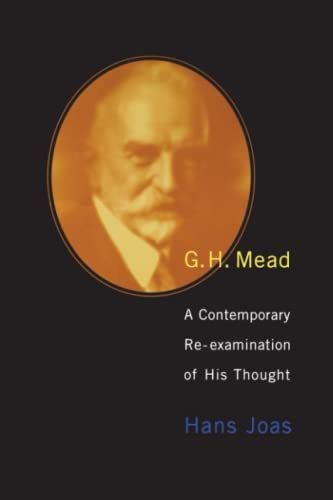
G. H. Mead A Contemporary Re-Examination of His Thought
This major study reassesses the work of the American pragmatist George Herbert Mead (1863-1931), which had a significant impact in fields ranging from metaphysics and ethics to sociology and social psychology. The work of American pragmatist George Herbert Mead (1863-1931) had a strong influence in fields ranging from metaphysics and ethics to sociology and social psychology. In this book, Hans Joas interweaves Mead's political and intellectual biography with the development of his theories. The key concept of the study is "practical intersubjectivity," a term Joas introduces to characterize the link implicit in Mead's work between a theory of intersubjectivity and a theory of praxis. Throughout the book, Joas stresses the practical, social, and political nature of Mead's work. Besides comparing Mead to the other American pragmatists, Joas discusses the relation between Mead's thought and that of such Europeans as Habermas, Apel, Husserl, Merleau-Ponty, and Piaget. Joas's revisionist portrait of Mead as a socially engaged intellectual, with its emphasis on his relevance for contemporary philosophy and social science, has been a key factor in the revival of interest in Mead. The author's new preface includes an update on pragmatism studies in general and on Mead studies in particular.